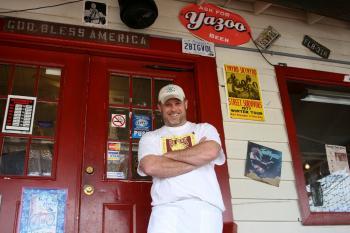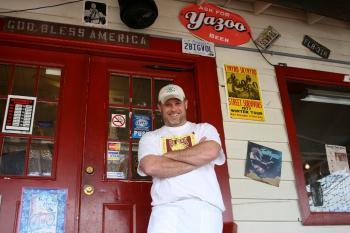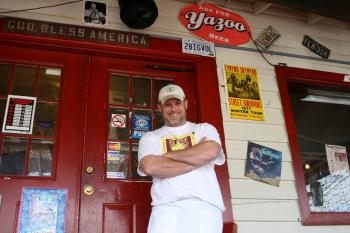Nolensville, TENN.—There’s just something about barbecue. It’s more than a way to eat meat—it’s almost a celebration of life in a place like central Tennessee. Part tradition, part regional cultural legacy—it reflects the southern emphasis on family and community.
For Patrick Martin, barbecue is also his life’s work.
“I always wanted to open up a barbecue joint, but thought I would do it when I was 50,” says Martin, who owns Martin’s Bar-B-Que Joint in Nolensville, Tennessee, about 20 miles east of Nashville.
Martin, who is now 37, opened his roadside restaurant three years ago with a skeleton crew that initially included his mother and father. In those first few days his mom—who still makes the restaurant’s desserts—cleaned tables and his dad washed dishes. What started as an on-the-spot decision to take over the lease on an empty restaurant and open his own place has been a labor of love ever since.
“There were nights those first few months when I would go home at night and sit on the edge of my bed and think, ‘I don’t know if I can do this,’” recalls Martin, who virtually had no restaurant experience before opening.
Fortunately, his barbecue joint was packed with customers from opening day. Today, there’s a line at the register every day at 11a.m. sharp when they start serving lunch.
The welcoming front porch of Martin’s place is painted red and leads to a homey restaurant with red-checker tablecloths. Lively blues music and southern rock are piped over an intercom, and a friendly staff knows the menu backwards, and many of the customers by name. There is no hint of pretense, despite the wall full of glowing magazine and newspaper reviews and endorsements.
“I stopped putting them up after a while,” says Martin somewhat sheepishly as he looks at the wall. “At the beginning, it was more important so people would feel comfortable about eating in a new place.” Martin’s humble approach to serving the best food possible is typical of barbecue restaurants in the south.
What started as a small operation is now growing beyond Martin’s imagination. Today, his place is known by reputation and about 70 percent of his customers come from the Nashville zip code, 20 minutes away. He plans to open a new location within months just down the road. It will be three times the size of his current location and will feature a barbecue pit for cooking whole hogs.
And his food has started earning national recognition, too. Martin and his crew will be part of the Big Apple Barbeque in New York City this June, where he’ll barbecue a whole hog and serve barbecue sandwiches to at least 3,000 people a day. Whole hog is a process that takes 24 hours and requires an intimate understanding of the different parts of a hog.
It’s a prestigious event to be part of, but Martin is careful to point out that the food he makes is a presentation of his region’s culture and of his brand of barbecue, including his secret barbecue rub.
“[Whole hog] is a dying art,” says Martin. “As the pitmaster you give reputability to your product—it’s like being a chef.”
Tenn. BBQ Restaurant Preserves Southern Cultural Roots
There’s just something about barbecue. It’s more than a way to eat meat—it’s almost a celebration of life in a place like central Tennessee. Part tradition, part regional cultural legacy—it reflects the southern emphasis on family and community.

PRIDE: Patrick Martin, owner of Martin's Bar-B-Que Joint in Nolensville, Tenn. stands outside his restaurant. Genevieve Long/The Epoch Times
|Updated:






